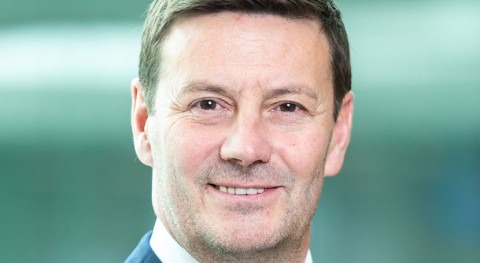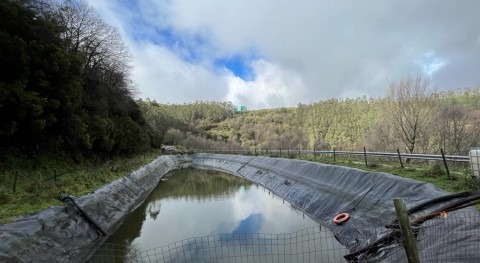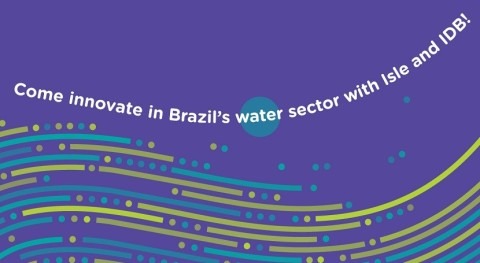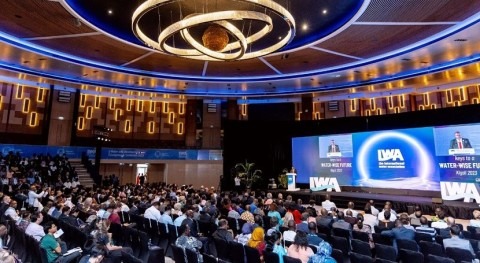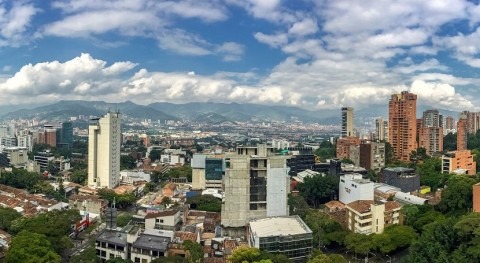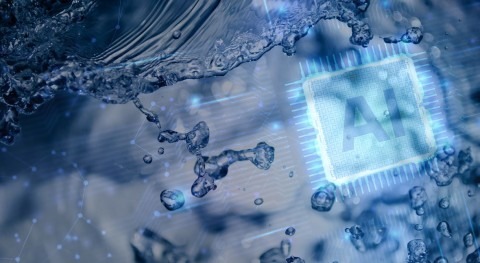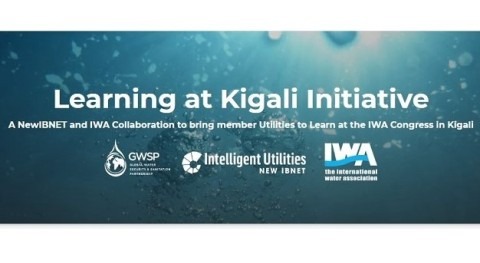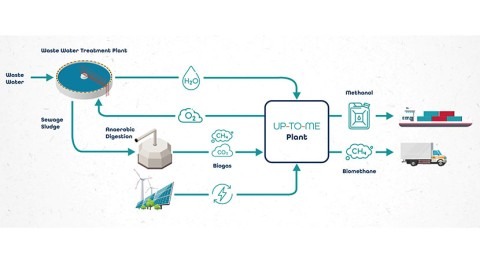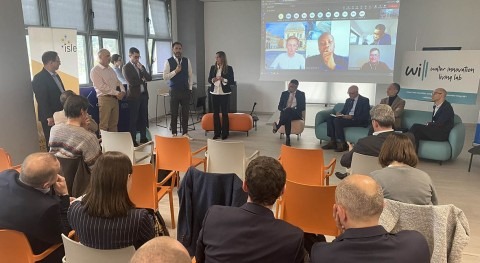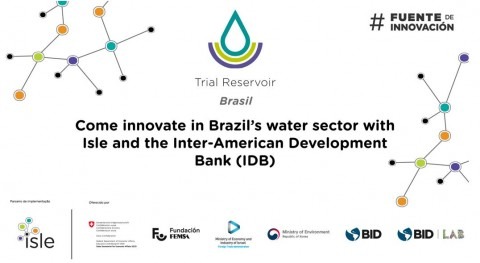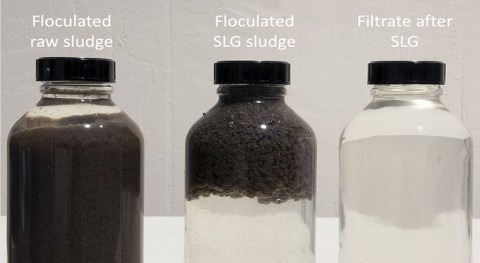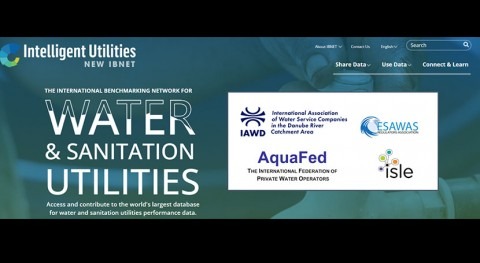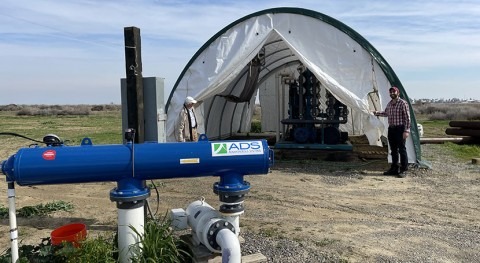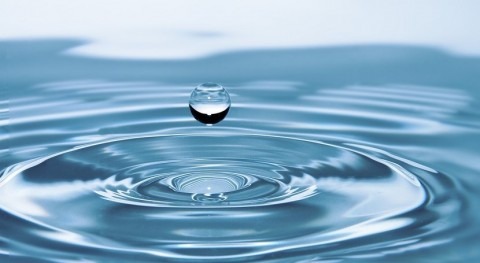Isle is an independent technology and innovation consultancy that brings together technical and commercial specialists to facilitate relationships. The company has a global team of scientists, engineers, business experts and regulators, with a common drive to achieve a positive social, economic and environmental impact through the advancement of innovative technologies and related practices. We speak with Victor Arroyo, IFI and Strategic Markets Director, of the company.
Question: Although some of our readers already know you, can you tell us about your career path up to your current position at Isle Utilities?
Answer: I graduated in chemical engineering from the Complutense University of Madrid, and have an MBA focusing on the infrastructure sector from the EOI Business School in Madrid.
At Isle Group, I lead business development efforts in Spain and Latin America, and I am also in charge of strategic relations with International Financing Institutions. I have 25 years of experience in the water sector, in business development and project management, in Europe, Africa and Latin America. I focus on the identification and management of projects that involve water resources, irrigation, water and sanitation, capacity strengthening in water companies, and services in peri-urban and rural areas in Africa and Latin America, with experience in the technical and commercial optimisation of water supply services.
In my career I have become very familiar with the project management cycle of international organisations, from identification and feasibility studies to monitoring, strategy development and knowledge management. I have been in charge of the Water and Sanitation sector for the Latin American region at international organisations (UN habitat and CAF), representing those institutions before high level officials from national governments, clients and partners, and coordinating the technical sector dialogue. In addition, I have been a member of the Board of Governors of the World Water Council, of the Scientific Committee of the Stockholm World Water Week, and the Water and Development Congress organised by the International Water Association. Currently I participate in the management committee of IWA's sustainability working group and I support the fund-raising committee of the IWRA.
We support the water sector to solve the challenges of water cycle management, through innovation and the incorporation of the best technologies
Q: The mission of Isle utilities is different from that of traditional engineering or consulting firms. What is it?
We are a global, independent consultancy, with a solid track record in identifying innovative technology solutions in the water sector and accelerating their uptake. We support the water sector to solve the challenges of water cycle management, through innovation and the incorporation of the best technologies, in water resource management as well as in efficient network management, reduction of leaks, desalination, drinking water and waste water treatment, reuse, sludge management including energy generation through treatment (anaerobic digestion, gasification, pyrolysis, etc.), flood and drought control and other environmental sectors.
For the water sector, keeping informed on the development of new technologies is no easy task. The volume of technology development is huge, and understanding the potential impact and the risk of implementing them can seem overwhelming; ultimately, this leads to dependence on traditional technologies, well-known and with a longer track record of use. Even knowing that a technology or process has inherent disadvantages, it may be selected just because it is better understood. Therefore, although new technology offers potential benefits, it is necessary for the entire sector to collaborate and share best practices in order to increase the likelihood of uptake.
We act as a facilitator between technology developers (entrepreneurs, startups, and SMEs) and end users (industry, municipalities, utilities, companies and authorities involved in water cycle management) and/or investors.

Our core capabilities are:
- We identify and assess novel technological solutions for end users (industry, municipalities, utilities);
- We qualify and quantify market opportunities for technological solutions;
- We facilitate the acceleration of technology development and commercialisation;
- We design innovation strategies and manage innovation projects;
- We facilitate relationships with a large and diverse range of collaborators and stakeholders through innovation fora;
- We support end users through the initial and development stages of innovation processes, as well as to monitor the implementation of technological solutions.

Q: What services does Isle Utilities offer?
Isle comprises a team of highly qualified engineers and scientists with ample experience in the implementation of innovation projects. We provide services at three different levels:
Technology developers: We provide consulting services with market intelligence for the development of technologies, and facilitate the introduction of products through:
- Business development support;
- Market entry analysis studies;
- Business incubator services;
- Management, supervision, and independent advice on the application of technology pilot tests.
End users: We help enhance the performance and improve de efficiency of operations in the industrial and municipal sectors, and water and sanitation service providers, with the incorporation of innovation into their activities, through:
- Technology horizon scanning to address operational or service management challenges;
- Innovation needs assessment;
- Innovation workshops;
- Identification of technologies and technology trend analysis to identify and classify technologies according to their stage of development (emerging, consolidated and verified);
- Comparative studies of technologies;
- Projects to assess technical feasibility;
- Development of internal processes and best practices in innovation;
- Management and supervision of technology pilot tests as an independent company.
Investors: we identify innovators and technological solutions that fit with your investment strategies through:
- Technology scouting processes to identify technologies;
- Projects to assess the technical and commercial feasibility of technologies.
Q: Where in the world is the company present?
We are a global company, working from our offices in Europe (United Kingdom, Netherlands, Germany, Italy), United States, Philippines, South America, South Africa, Australia, United Arab Emirates and Singapore.
Q: What is Isle's view on the role of innovation in integrated water cycle management?
Future water and sanitation companies should understand and adopt key innovation opportunities throughout the water cycle. They can be divided into three main areas:
- Innovations for water supply security. Emerging technologies in this area enable smarter management of water reserves in basins and help to improve resilience. For example, through the use of data gathered from diverse sources such as sensors, cameras, radars and satellites. These data can be used to show potential pollution sources in a catchment area, to be able to take proactive action, and improve water quality before it reaches the treatment plant. Nevertheless, even with this intervention, treatment will always be required to provide high quality drinking water, and in this regard, existing technologies to remove difficult and/or emerging contaminants, treat brackish water and control water quality will also be important.
- Innovations to ensure effective waste water management. Generally, waste water treatment requires significant funds to be upgraded in many regions of the world. However, the positive side is that technologies for waste water treatment have progressed significantly in the past few years, and in some cases, the investments needs and operational costs are much reduced. Nonetheless, the biggest change for centralised sewerage systems is recognising the energy and nutrient content of waste water flows, that allow waste water treatment plants to become energy and fertiliser producing plants. In regions with fast growing populations and without legacy sewerage systems, the model could be shifting to a decentralised model with in situ or very small treatment sites.
- Companies can benefit from digital technologies. The proliferation of digital tools such as advances in sensors, software, blockchain and artificial intelligence provide water companies a wide range of ways to better manage services and gain efficiency. From the most common telemetry systems that enable remote management to sophisticated analysis of pressure data to identify potential leaks, the possibilities are potentially huge.
Q: In this regard, how has the use of technology evolved in water management?
The provision of water services is now at a demanding but exciting point, because traditional approaches are being questioned as new technologies mature. The challenge is for public water service providers to develop technical capacity and ensure the professional development of their staff, since the implementation and operation of technologies requires qualified operators.
Effective collaboration, both internal and with external partners and clients, will have a crucial role. Water companies have to leverage innovations from internal and external sources, evaluate the most promising ones according to their business needs, and develop and create prototypes to be implemented as effective solutions. Collaboration between companies and the dissemination of the best technological solutions will ensure that companies are resilient to future challenges.
Q: Can you tell us about Isle Utilities' activity in the water sector?
One of Isle's best accepted initiatives are the Technology Approval Groups (TAG). The main water services in the world participate in the TAG global innovation forum. It was launched for the first time in the United Kingdom in 2005, and since then it has evolved to a great extent.
To date, we have organised TAG fora in Europe, Africa, the United States, Brazil, Singapore and Australia, and there are good prospects and demand for them in other regions.
TAG fora accelerate the uptake of innovative technologies, by engaging end users during the pre-commercial stages of development and by leveraging external investment from venture capital investors.
The benefits for TAG participants are:
- TAG members can access a portfolio of high quality new technologies, without diverting their attention from the main business;
- Shorter time to market for emerging technologies;
- Collaboration with the main industry stakeholders;
- Improved R&D incentives; for example, TAG members can negotiate royalties with supporting companies;
- TAG members have a 'market advantage' concerning new technologies and they stay at the forefront of technological development;
- A platform for local technology developers, to gain traction in the local and global market.
Q: Can you tell us about some success stories in this regard?
One of the most interesting projects we have developed in the past few years has been the development of the Water Innovation Platform for Africa (WIPA) to understand the needs and challenges faced by water services in sub-Saharan Africa, and build a platform to channel the technological solutions that will best meet their needs.
This project not only helps to overcome some barriers around the uptake of new technologies, but also helps with the infrastructure development challenges of water companies. In collaboration with the African Water Association (AfWA) and financed by the International Finance Corporation (IFC) and the Global Innovation Fund (GIF), WIPA deals specifically with the lack of access to drinking water and basic sanitation services, and improving resilience to the effects of climate change.
WIPA started building connections with water companies in sub-Saharan Africa and securing their commitment, and evaluating the needs, in order to understand specific challenges. This led to the participation of more than 20 water companies in the whole region. Afterwards, Isle organised two formal WIPA meetings in collaboration with AfWA's Scientific and Technical Committee.
The provision of water services is now at a demanding but exciting point
To date, more than 400 technologies that could meet the needs of WIPA's members have been assessed. A more detailed analysis showed there was potential for 75 technology trials. Nine of the opportunities from the first workshop moved forward and Isle played an essential role to facilitate follow up with water companies and technology companies. This led to the implementation of one technology by Ghana Water, and trials of different technologies in Nigeria and Uganda. The six remaining opportunities are currently at the development stage.
WIPA has been running since November 2016, with the first phase ending in December 2018. Continuing IFC financing has been secured to ensure the project can continue until June 2021.
Another interested project is a recent one we were involved in with the Inter-American Development Bank (IADB). The main goal was to support IADB's efforts to foster water technology innovation in the water sector in Latin America. The project comprised the following:
§ Confirm which are the major challenges for water operators in Latin America and the Caribbean that can be addressed with innovative solutions;
§ Develop intelligence on existing innovative technology solutions to address the priority issues identified;
§ Support the IADB in the organisation of an innovation event following the TAG model to present those innovative solutions.
By itself, improving knowledge of the technology available globally does not ensure uptake. The work proposed trying the TAG model which has already been implemented successfully in other regions, to support the uptake of technology by water utilities in Latin America.
Isle interviewed 10 water companies in Latin America and analysed information from the Aquarating IADB project identifying challenges and priorities for the sector in Latin America. Isle organised a technology scouting process to identify a group with the most suitable ones to help water companies overcome the challenges, and organised a TAG exhibit during the IWA-IADB Innovation Conference on Sustainable Use of Water: Cities, Industry and Agriculture, held in Guayaquil.
Based on the list of priority technologies, Isle prepared a report describing how this set of technologies and innovations could contribute to improving the efficiency of water services management in Latin America. The report outlines the benefits of adopting the technologies, focusing on the issues that were considered key to improve the efficiency of water companies.





